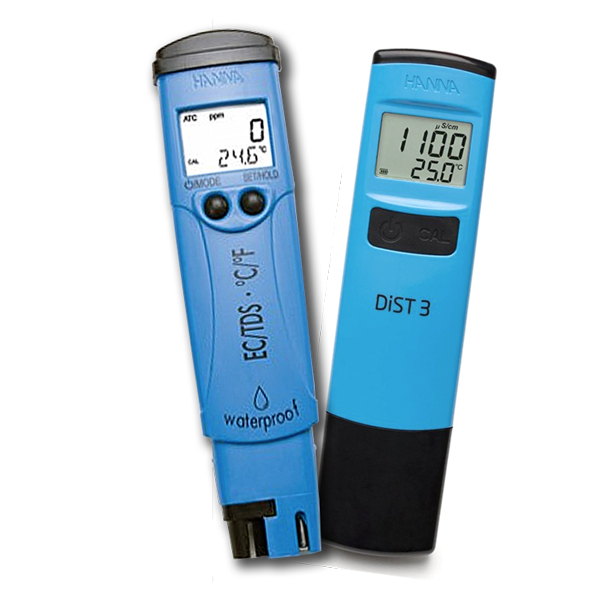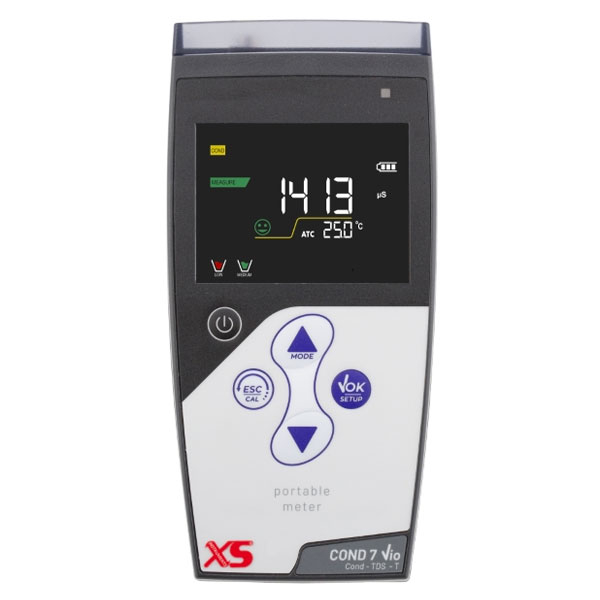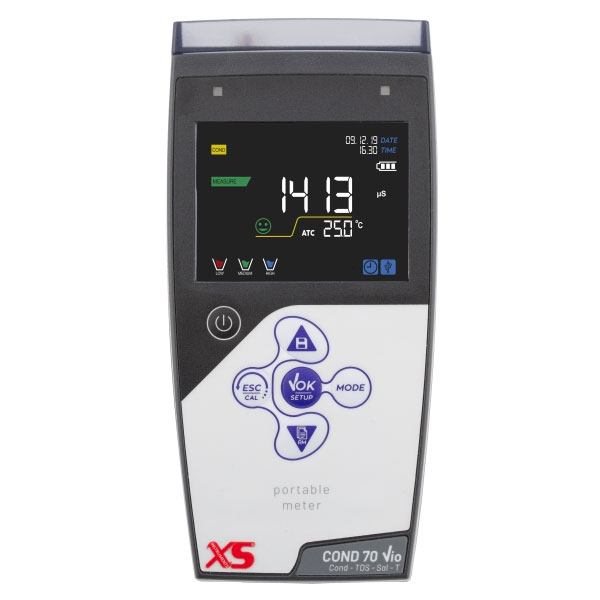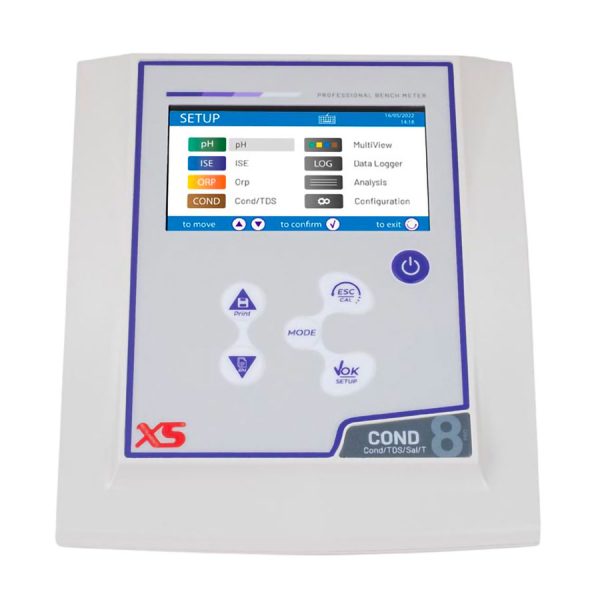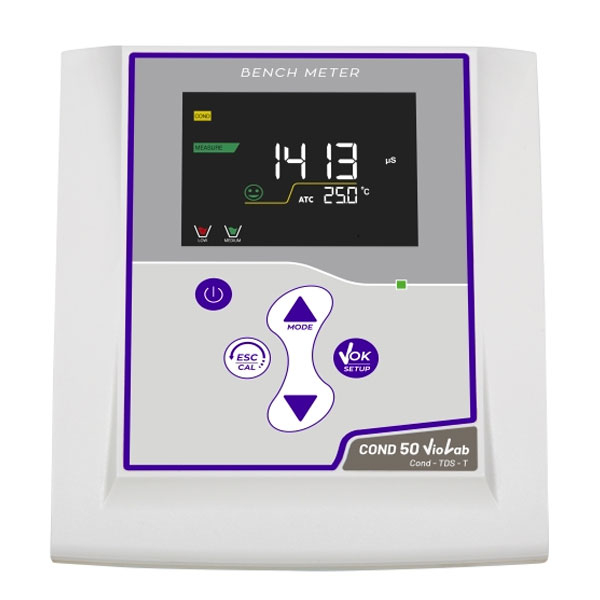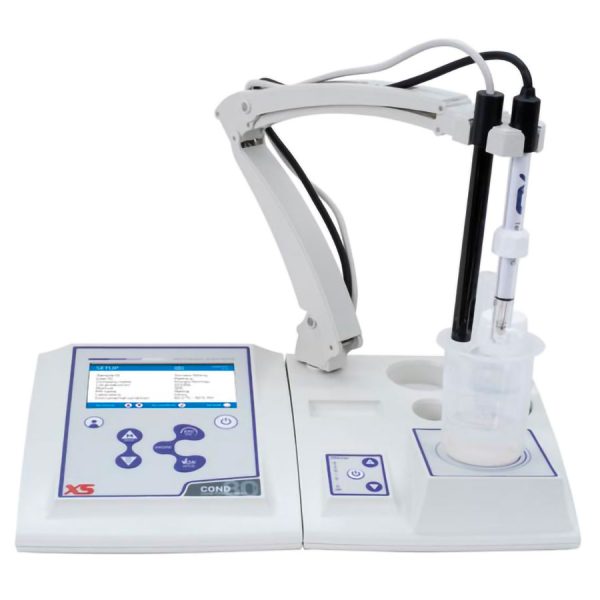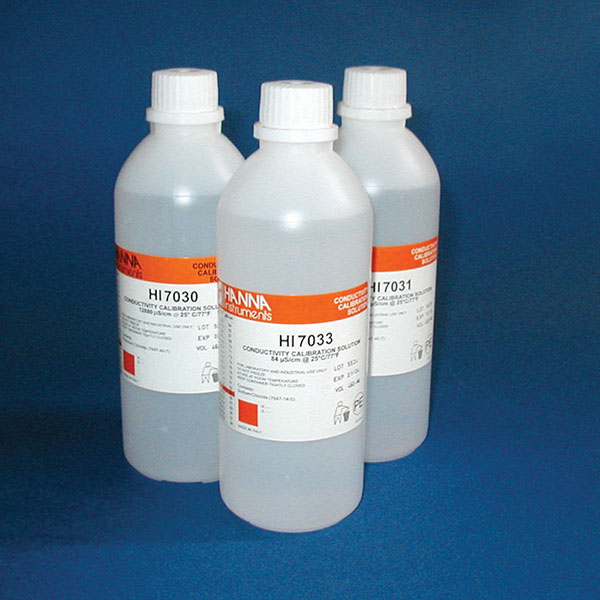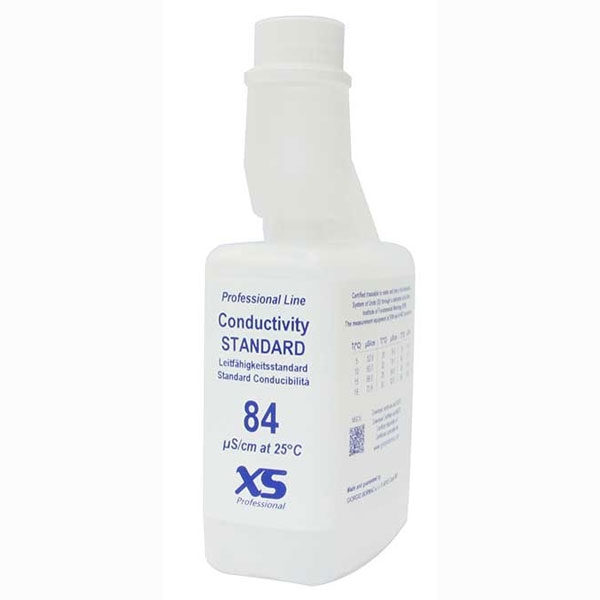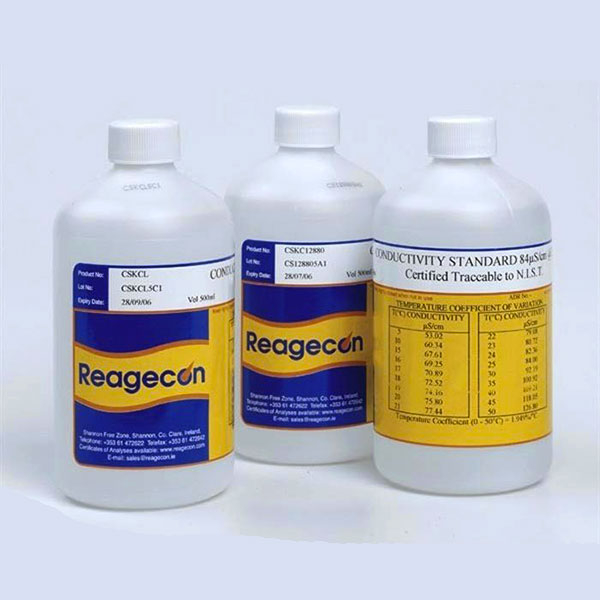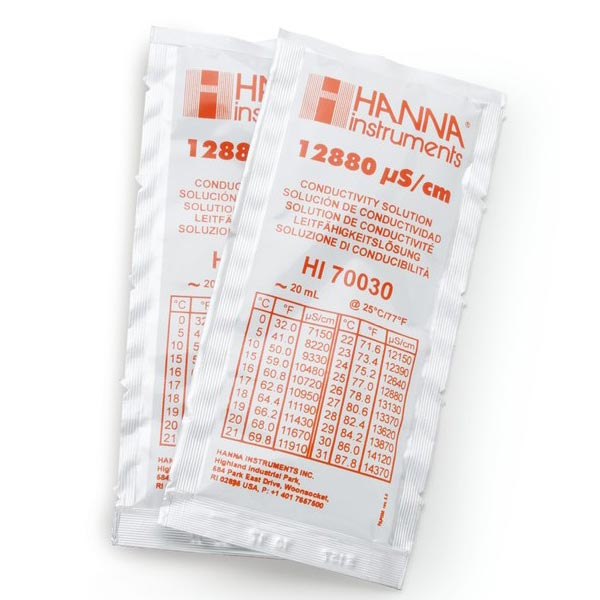Conductance meters measure conductivity, which is the value that determines different types of water. These values are measured in µS/cm usually at a temperature of 25°C.
Waters are defined as pure when conductivity values are around 0.05 µS/cm. Drinking water has values from 100 to 1000 µS/cm.
What conductivity meters measure
By measuring conductivity, conductivity meters identify the electrical properties of a solution and determine the ions present. The parameter that defines these values is conductivity.
Conductivity is directly proportional to the presence of salts, both acidic and basic, present in a solution.
Conductivity is a crucial parameter in water analysis. This analysis is valid for drinking water, for waste water or for analysing discharges from industrial processes.
The measurement of conductivity
Conductivity is measured by analysing electrical resistivity.
Measuring cells consist of two electrodes with similar characteristics. Applying an alternating voltage to one of the electrodes causes the ions in the solution to migrate towards the electrodes.
The higher the concentration of dissolved ions in the solution, the greater the current flowing between the electrodes.
In general principles, the conductivity meter measures current using Ohm's law to calculate the conductance of the solution and, using cell data, quantifying conductivity.
Cells and Conductivity Measurement
Conductivity measurement is carried out using a probe called a conductivity cell. This is connected to the conductivity meter and immersed in the solution to be measured. The measured value is calculated in µS/cm or mS/cm (sub-multiples of the main unit of measurement S/cm).
Use of conductivity meters
Conductivity meters are used in all training laboratories in schools and universities. In the professional field, it is needed in the analysis of Chemical Industries, Laboratories of various types, and in Printing Works. It is widely used in the environmental analysis sector for waste water treatment. In industry, it is present in Cooling Towers and Boilers.
.
Different types of conductivity meters
There are benchtop conductivity testers and portable conductivity testers.
Benchtop conductivity testers usually carry out routine measurements in the laboratory.
Portable conductivity testers are made to carry out measurements in the field, often outdoors.



